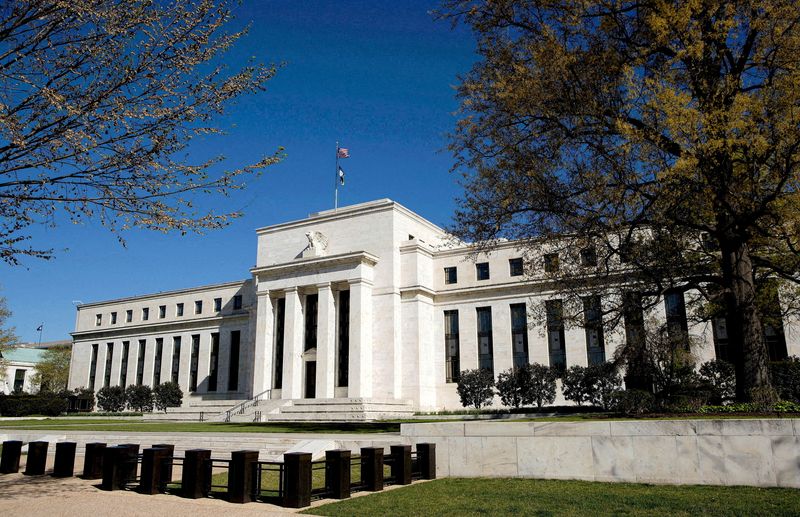By Koh Gui Qing and Elizabeth Howcroft
NEW YORK/PARIS (Reuters) – Global stock prices held steady and Treasury yields fell slightly on Wednesday after data showed U.S. consumer prices rose moderately in July as expected, reinforcing investor expectations that the Federal Reserve would soon can start lowering interest rates.
But the size of the Fed’s first rate cut, which many investors hope will come in September, remains in doubt as the market debates the chances of a 25 or 50 basis point cut.
The consumer price index rose 0.2% last month after falling 0.1% in June, data showed, although shelter inflation, which includes rents, accelerated in July compared with June.
“The only thing that was surprising here was the increase in rents,” said Gennadiy Goldberg, head of U.S. rates strategy at TD Securities in New York. “I think this is the reason for the market’s somewhat disappointed reaction, even though the conclusion was actually on the weaker side of the consensus.
“I think the market is reassessing the chances of a 50 basis point rate cut in September. That pricing appears to have fallen from about 39 basis points before the reading to 36 basis points now.”
It ended up up 0.38%, it added 0.6% and it ended unchanged. [.N] The MSCI World Equity index rose 0.51%, its highest level in twelve days.
In line with expectations that US monetary policy will be eased soon, the benchmark fell to 3.8371% and the two-year Treasury yield was stable at 3.9621%.
Europe’s rose 0.5% on the day, while London rose 0.6% after data showed British inflation rose less than expected in July.
POLICY RELAXATION
Central banks around the world have started cutting interest rates successively in recent months as inflation cools. New Zealand’s central bank cut interest rates for the first time in four years on Wednesday and signaled further monetary policy easing was coming. This move led to a sell-off in the dollar, which fell about 1% that day.
The Japanese yen and the stock fluctuated after Japanese Prime Minister Fumio Kishida said he would resign next month, but Asian shares broadly rose as markets recovered from the recent rout.
Shares of UBS rose about 3.1% after the bank reported net profit of $1.1 billion in the April-June quarter, beating analysts’ expectations.
Last week’s sell-off in global markets was widely blamed on fears of a US recession, leading traders to bet that the Federal Reserve would have to cut interest rates quickly to boost growth. Stock and bond markets were also affected as traders exited carry trades in the yen in response to the strengthening yen following a surprise rate hike by the Bank of Japan.
US figures have since allayed fears of a recession. Stocks rose on Tuesday after US producer price data pointed to a cooling in inflation.
“The markets are less panicky,” said Justin Onuekwusi, chief investment officer at investment firm St. James’s Place.
Still, he said, traders may be ahead of the curve in their expectations for rate cuts.
“The market is being way too aggressive with these Fed cuts, especially when there are aggressive Fed officials saying they are looking for more data to support the cuts.”
Atlanta Federal Reserve President Raphael Bostic said Tuesday he wanted to see “some more data” before he was willing to support a rate cut.
Under pressure from the upcoming interest rate cuts in the US, the price remained at 102.61. A sluggish dollar helped the euro climb to the day’s high at $1.10475, the highest in more than eight months.

In commodities, futures prices fell 1% to $79.9 per barrel, while U.S. West Texas Intermediate crude fell 1.5% to $77.18. Traders said concerns that the conflict could spread across the Middle East and threaten output at one of the world’s biggest oil producers had eased somewhat. [O/R]
Supported by speculation about the size of the Fed’s first rate cut, gold traded 0.7% lower at $2,447.2 an ounce. [GOL/]


